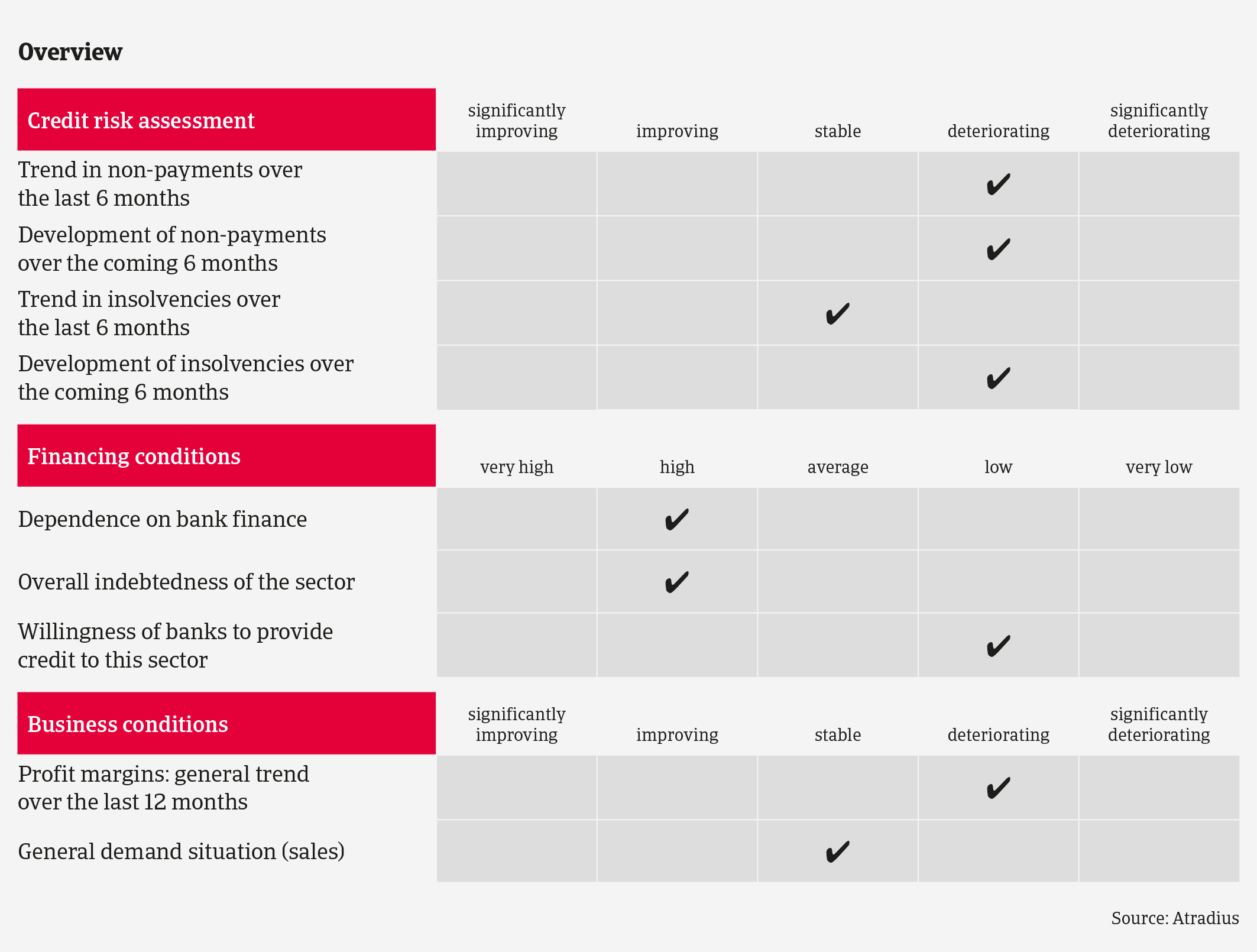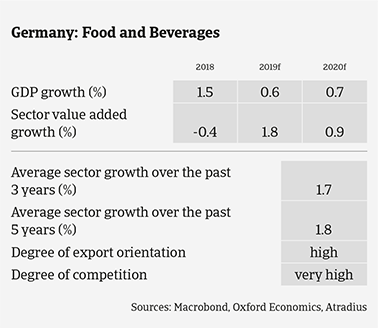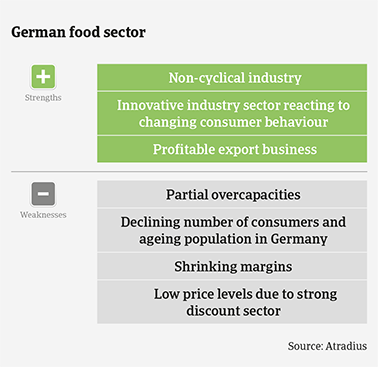Insolvencies are expected to increase by about 1%-2% in 2020, mainly in the troubled meat segment and the beverages and fruit & vegetables subsectors.
- Business failures expected to increase in 2020
- Difficult domestic market situation
- Number of fraud cases increased further in 2019


According to the German Food Association BVE, nominal turnover increased 1.5% year-on-year in H1 of 2019, to EUR 89.5 billion, mainly due to slightly higher market prices. Despite growing sales in 2019, domestic market conditions remained difficult for food producers and processors due to rising input costs, including labour costs, and structurally low margins.
The German food retail market is the most competitive in Europe, with low market prices due to the overwhelming power of the leading food retailers and discounters. This, together with tough competition and price wars in the retail market indicate that food producers, processors and suppliers have found it difficult to pass on costs. This issue will persist in 2020, leading to further (albeit slightly) decreasing profit margins for many German food processors.
The situation in the dairy segment has stabilised somewhat since the end of 2016, and value added is expected to increase by about 1.5% in 2020. However, volatile market prices and difficulties in passing on higher input costs remain issues. As a result, profitability in this segment remains low.
A wave of longer payment terms along the supply chain
While overcapacities impact the beverages subsector, many meat processors and producers suffer from higher procurement prices, especially for pork, while their ability to pass on those increases to retailers is limited due to long-term contracts. The outbreak of the African swine fever epidemic in China has led to substantially higher raw material prices, which many pork meat processors cannot tack on to the sales price. Meat subsector value added contracted 0.8% over the past five years, and is expected to contract again in 2020, by 0.6%.
While the dependence on banks for external financing is high, financial institutions remain rather unwilling to provide loans to food businesses compared to other industries. Food producers and wholesalers pay, on average, within 30 days, while payment terms of food retailers often vary from 45 to more than 90 days. With food processing companies and retailers demanding longer payment terms from their immediate suppliers to improve their working capital, a wave of longer payment terms is being created along the whole supply chain, and payment delays have increased in 2019.
Insolvencies expected to increase as much as 2% in 2020
Insolvencies are expected to increase by about 1%-2% in 2020, especially in the troubled meat segment, but also in the beverages and fruit & vegetables subsectors. Most at risk to fail are (smaller) businesses that lack export opportunities or that do not offer specialised products, and companies with already poor financial strength.
Overall, our underwriting stance remains neutral to cautious for the food sector, with a more open stance for food retail, while remaining restrictive for meat production and meat processing, as we expect the difficult business environment in this subsector to persist in 2020. While we are closely monitoring the current increase in trade protectionism, for the time being, we see no serious impact from the recently imposed US import tariffs on German food exporters that could jeopardize their credit risk situation.
The German food sector remains affected by a considerable number of fraud cases. Impersonation (identity) fraud cases have further increased in 2019. Especially in the fish, fruits and vegetables segments criminal buyers order goods easy to resell on credit terms.
Therefore, we pay close attention to the number of credit limits that are applied for within a short period, especially where the buyers are recently established and where management and/or shareholders have recently changed or the buyer’s business sector does not match with the goods ordered (e.g. a steel company ordering food items). The same applies when a buyer proactively sends financial figures that indicate unusually high profit margins.

Downloads

1.19MB PDF
